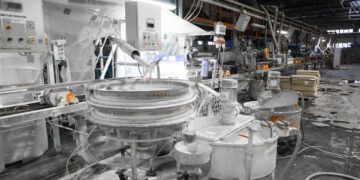The fusion of nanotechnology with biology, termed nanobiotechnology, is leading humanity into an era where manipulating the tiniest particles can produce monumental impacts. Within India’s dynamic research ecosystem, this confluence of disciplines is crafting solutions to long-standing challenges. “In the realm of the minute, lies the might of transformative innovations.”
1. Drug Delivery: Precision and Efficiency
Nano-Carriers: Using nanoparticles to deliver drugs ensures they reach their specific target within the body, minimizing side effects and enhancing efficiency.
Indian Initiatives: Institutions like the Indian Institute of Technology (IIT) are spearheading research in nano-based drug delivery, with potential applications in cancer treatment and more.
2. Diagnostics: Rapid and Accurate Detection
Biosensors: Nanoscale biosensors can detect diseases at a very early stage, even before symptoms manifest.
Point-of-Care Devices: Portable diagnostic devices utilizing nanotechnology can be pivotal in remote areas of India, ensuring timely disease detection.
3. Water Purification: Clean Water for All
Nano-Filtration: Nanoparticles can effectively filter out contaminants, pathogens, and even heavy metals from water, ensuring its purity.
Scope in India: With water scarcity and contamination issues in various regions, nanobiotechnology can play a crucial role in ensuring clean drinking water.
4. Regenerative Medicine: Healing from Within
Nano-Scaffolds: Nanomaterials can provide a framework for cells to grow, aiding tissue regeneration and wound healing.
Stem Cell Manipulation: Nanoparticles can be used to guide stem cells, offering promising avenues in regenerative therapies.
5. Agriculture: Boosting Crop Yields and Health
Nano-Fertilizers: Slow-release fertilizers at the nanoscale ensure efficient nutrient absorption, leading to healthier crops.
Pest Control: Nanoparticles can be engineered to combat pests without harming the crops or the environment.
6. Energy Harvesting: Power from the Smallest Sources
Nano-Generators: Converting mechanical energy from minute sources, like vibrations, into electrical energy using nanomaterials.
Solar Cells: Nanotechnology is being utilized to create more efficient photovoltaic cells, maximizing energy capture from sunlight.
7. India’s Role in Nanobiotechnology: A Beacon of Progress
Research Institutions: Prestigious institutions such as the Jawaharlal Nehru Centre for Advanced Scientific Research (JNCASR) are at the forefront of nanobiotech research.
Collaborative Ventures: India’s collaborations with global research hubs ensure the exchange of knowledge and the acceleration of groundbreaking innovations.
Conclusion
Nanobiotechnology is unlocking avenues that were previously deemed impossible or too challenging to tread. The microscopic frontier, though minuscule in scale, holds enormous potential to reshape various sectors, from healthcare to agriculture. India, equipped with its vibrant research community and growing technological prowess, is set to be a major player in the unfolding nanobiotechnological narrative.




















